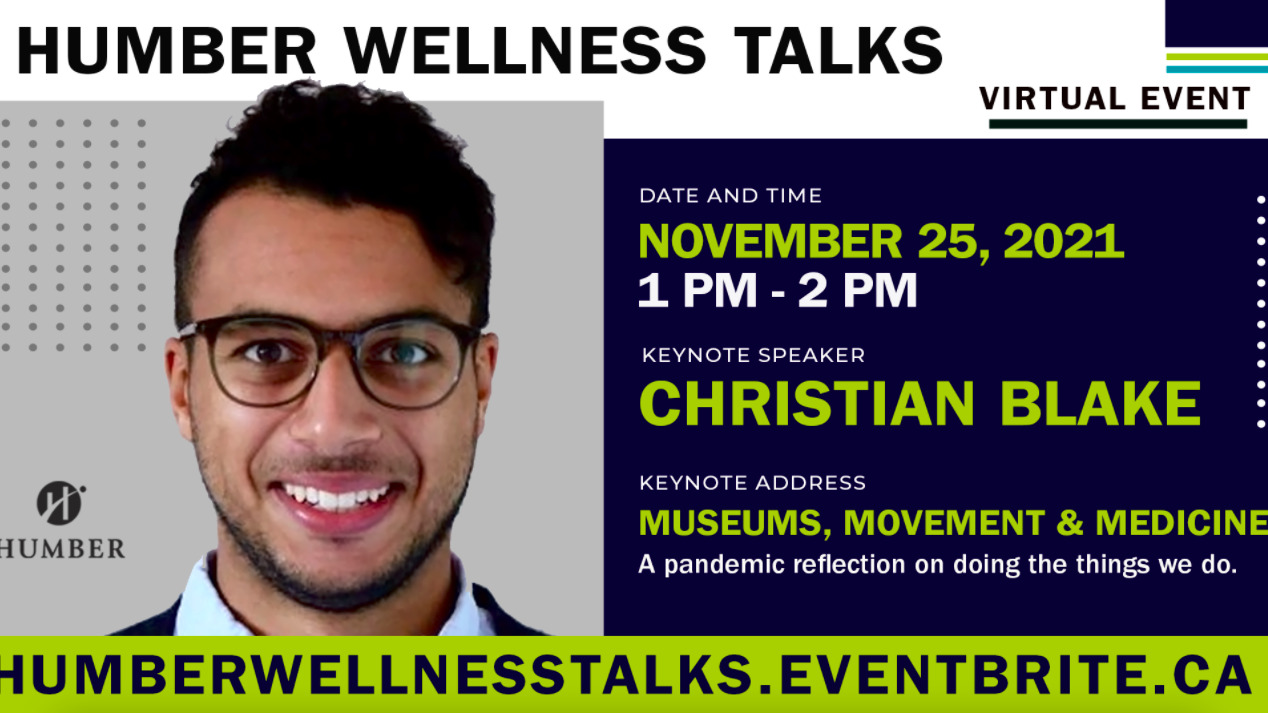A guest speaker told Humber College students they should try to rekindle their passions that may have been lost to months of pandemic-related restrictions.
Christian Blake, director of Equity, Diversity and Inclusion at the MLSE Foundation, says he’s an introvert and “a bit of a homebody by nature.”
So, in the beginning, being a “make-my-own-fun kind of person,” the lockdowns ordered to combat the COVID-19 pandemic didn’t really cramp his style.
“For folks like me, the pandemic was the time to lean into that state-imposed stay-at-home order,” he said.
But that changed, said Blake, the keynote speaker at a Humber College Wellness Talk on Nov. 25.
“I found myself starting to notice something,” he said. “That all this staying at home not doing things, it kind of sucked.
“The things we do contribute to the way we feel,” Blake said in a talk titled Museums, Movement & Medicine? A pandemic reflection on doing the things we do.
Blake said studies showed people have increased stress levels, anxiety, loneliness during the pandemic, when they were unable to be active, and this is true for all races, genders, ages and income levels.
Not doing things was not good for people’s mental health, said Blake, who is also an occupational therapist by training. He reflected on the importance of rekindling a light that has been allowed to dim or fade in an individual’s identity.
He told of a girl named Maggie who was a ballet dancer but had not performed in many years. Yet her self-image was that of a dancer.
“So what was the revelation? For me? It was that even when we’ve stopped ‘doing,’ what we do is still a large part of who we are,” Blake said. “The ballet dancer will still be a ballet dancer long after they’ve left the stage.”
He explained there are benefits to doing things that an individual has not done in a long time to recover those experiences.
Blake also spoke of “social prescriptions,” documented recommendations by healthcare professionals where a person participates in some type of activity as part of their treatment plan.
Social prescriptions, when followed, have produced improvements in mood, self-confidence, community participation and general health, he said, while reducing feelings of social isolation and anxiety.
As the world emerges from the pandemic, it’s an important return to activities we enjoy doing he said, even if we take little steps to return to previous routines.
“These things help to rekindle the embers we are, because who we are is also made up of what we do, even when we’ve stopped doing it,” Blake said.

